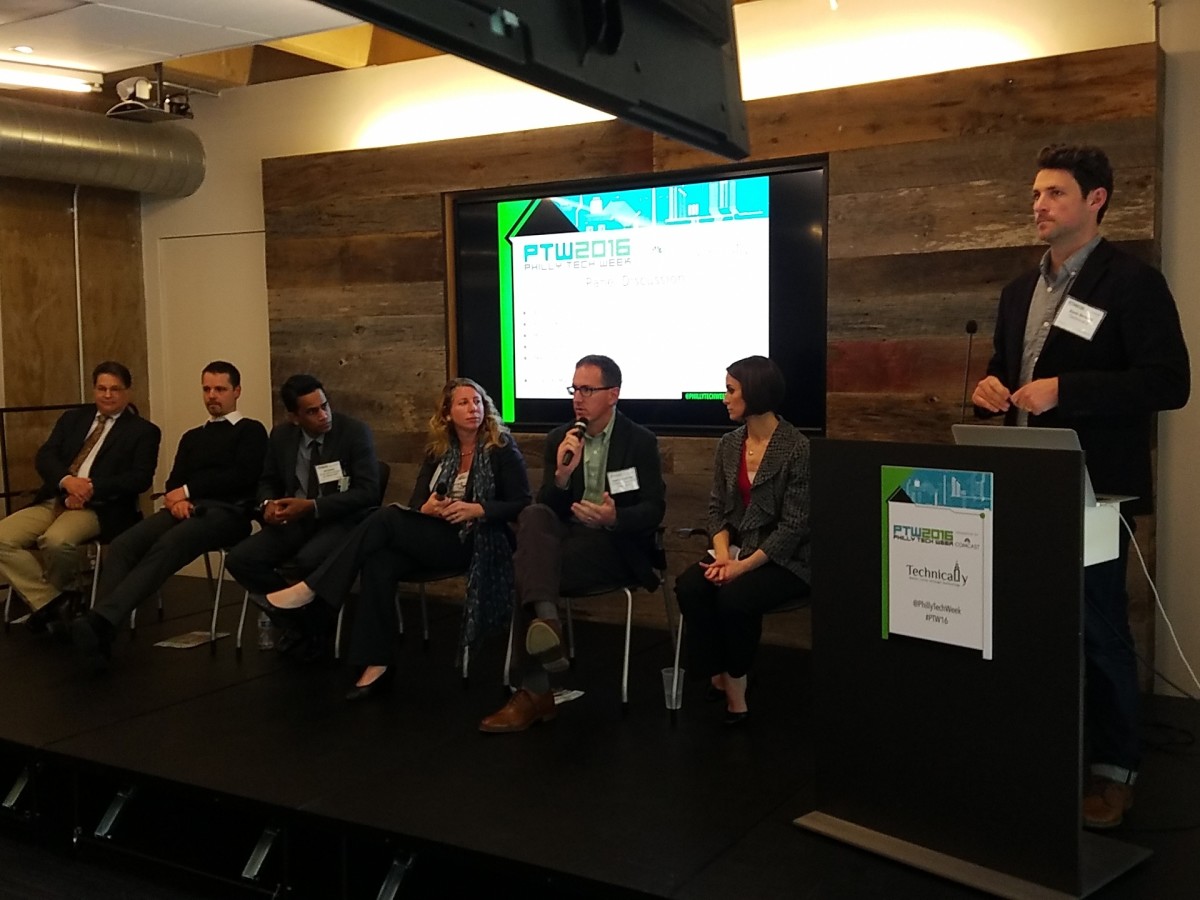After thorough examination, the results are in: Philadelphia’s health and life sciences scene is doing better than ever.
This was the consensus of a group of key industry leaders during a Philly Tech Week 2016 presented by Comcast panel discussion in the Center City offices of the Public Health Management Corporation.
Conveners, startups and major stakeholders sat on the panel, which included Claire Marrazzo Greenwood of the Greater Philadelphia Chamber of Commerce; Patrick FitzGerald, VP of Entrepreneurship and Innovation at the Children’s Hospital of Philadelphia; Laurie Actman, Chief Operating Officer of Penn’s Pennovation arm; Neil Gomes of the Jefferson health network; Max Perelman, cofounder of diagnostics startup Biomeme; and Anthony Green, VP of commercialization at the state-backed Ben Franklin Technology Partners.
The leaders’ voices stated a clear message: the sector is seeing remarkable growth, fueled in part by a major culture change at area research institutions.
Ben Franklin’s Green, who was particularly bullish on the Philly region’s prospects, came bearing figures.
“This region has over $1.4 billion in NIH [National Institutes of Health] funding, not all of which goes to the University of Pennsylvania,” he said jokingly (a lot of it does).
According to Green, the last 18 months have seen a surge in local health-tech commercialization.
“This represents a commitment from institutions to get their technologies out the door,” he said.
Marrazzo Greenwood, of the Chamber, said the growth spurt has to do with evolving policies at Philly-area universities and hospitals, but she also pointed to a six-month-old Chamber-coordinated effort called the Health Care Innovation Collaborative.
“We’re here to help you find partners, and that is a new model,” she said.
Patrick FitzGerald, a longtime investor and entrepreneur now leading commercialization efforts at CHOP, pointed to Spark Therapeutics as a successful example of health-science initiatives that can go from the lab to the marketplace. The company, which went public with a $1 billion IPO in January 2015, is now CHOP’s guiding light. The call to “find more Sparks” was mentioned several times during the panel.
Since projects need space to grow, no matter what sector they belong to, Actman says Pennovation is becoming a hub for researchers to fully explore the commercial possibilities of academic inquiry.

The open-to-the-public afternoon panel was a nice counterpart to the invite-only session that preceded it. There, members of the region’s health and sciences community were more likely to vent some grievances.
Startups in that roundtable discussion voiced the need for further access to talent, development spaces, resources and pilots for new technology.
Ajmail Matin, cofounder and VP for New Product Development at Psykee, Inc., said the Philadelphia community must learn how to bridge the gap between the tech community and health innovators.
“We have to do a better job at being more open minded to innovation in these sectors,” Matin said.
For Suzanne Garber, founder and CEO of Gauze, there is a pressing need for startups themselves to transcend “insular and myopic attitudes,” and start looking towards the international setting for partnerships and funding.
Leaning on his entrepreneurial background, CHOP’s FitzGerald offered hope for the burgeoning scene.
“Challenges will never go away, but every challenge is surmountable. CHOP translated 20 years of gene therapy research into a standalone company that had a successful IPO,” he said, referring to Spark. “When I see things like that, I clearly see the potential.”







